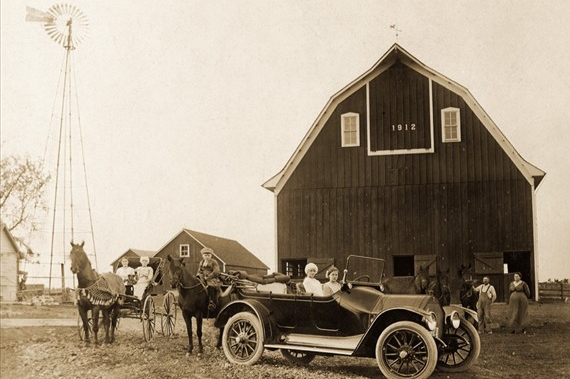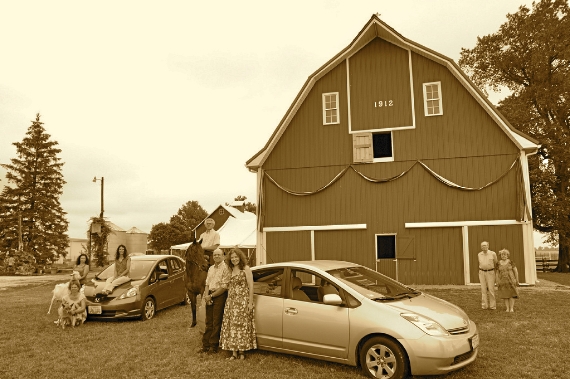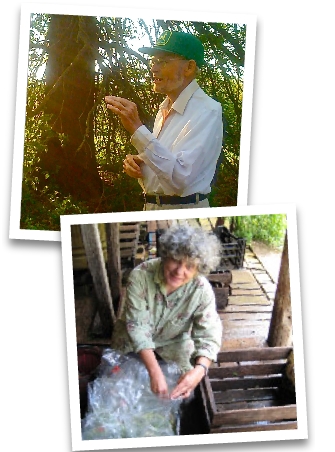
Brockman barn in 1912, soon after it was built

Brockman barn in 2012, at 100th anniversary
Herman and Marlene Brockman

"I have had many strong environmental influences, but all of my genome came, of course, from my father and mother, German and Dutch gene pools, respectively. From them I received my great love of nature, especially of the farm – of the soil and all that it nurtures. They seemed to have known instinctively that which I later learned from Aldo Leopold in his A Sand County Almanac, which is his famous ‘land ethic,’ which, as he defines it, "simply enlarges the boundaries of the community to include soils, waters, plants, and animals, or collectively: the land."
Herman Brockman was born in 1934 in the same room of the same farmhouse where his own father Fred had been born. Although he loved the farm life, he was also intelligent and studious, and his family and teacher encouraged him to go to college and get “a good job.” And so Herman got his PhD and taught genetics at Illinois State University for 35 years. When he retired, he started working on Henry’s Farm—proving that you can take the boy off the farm, but you can’t take the farm out of the boy.
When Jill moved back to the family farm, Herman enlisted neighbors Harold and Ross Wilken of Janie’s Farm Organics to transition the century-old farm to certified organic production. Now that the farm is no longer doused in chemicals, Herman is proud that Leopold’s land ethic has taken root.
“No one, not even I, would have thought I’d end up sorting tomatoes, picking strawberries, and doing other farm-related work for the last 27 years and even now in my mid-80s. But I find the work satisfying, and do whatever needs to be done. Perhaps I have, as the scientist Barbara McClintock said, “a feeling for the organism.” The tomatoes communicate with me and tell me their stage of ripeness and reveal any imperfections — even tiny ones others don’t see. And so I wear the title “chief tomato sorter” with pride!”
Marlene Castiglia was born on the south side of Chicago to a family of immigrants from Calabria in southern Italy. They had a hard life, “with just a smidgen of land for chickens and a garden,” and this was not what Marlene intended for her future. She was a serious student, and the only one of her siblings to go to college. It was in a biology class at Blackburn College, where the teacher had the students sit in alphabetical order, that Brockman sat next to Castiglia, and the beginning of another clan began.
Herman and Marlene were married in 1956, as Marlene was finishing her RN and BS in nursing at Wesley Memorial (now Northwestern Memorial Hospital) in Chicago, and Herman was finishing his masters degree at Northwestern University. Their first children, Fred and Terra, were born in Tallahassee, Florida where Herman went to do his PhD. Beth and Teresa were born in Oak Ridge, Tennessee, where Herman was doing his post-doctoral research. And Henry and Jill were born in Normal, Illinois, where the family moved for Herman’s job at Illinois State University. At this point Herman and Marlene detected a pattern, and stopped moving!